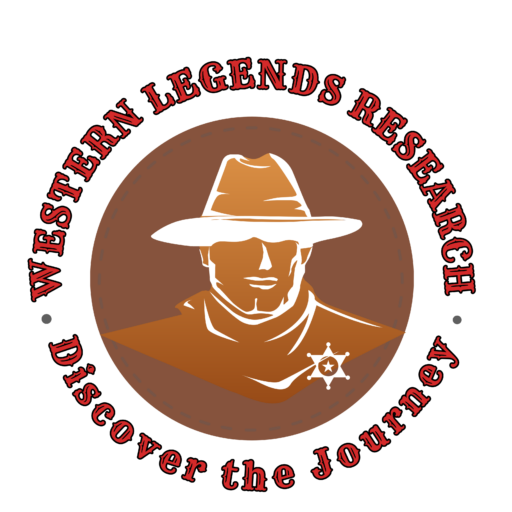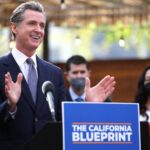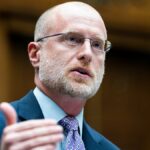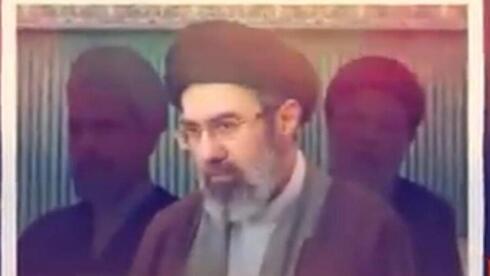Advocacy Workshops, Anti-Racist Audits: Inside a Top Medical School’s Radical Curriculum Overhaul
On November 16, 2023, just before 8:00 a.m., hundreds of pro-Palestinian protesters formed a human chain across the San Francisco Bay Bridge, blocking all westbound traffic and trapping tens of thousands of vehicles in a five-mile backup.
Among those vehicles were three trucks associated with the University of California, San Francisco, health system. Each was transporting organs that were set to be transplanted later that day, and the couriers, who had budgeted just 30 minutes of travel time, had their arrival delayed by nearly four hours.
The holdup forced UCSF to postpone pressing operations and put organ recipients at greater risk. “Every minute of time on ice is hard for the organs,” Garrett Roll, a UCSF transplant surgeon, told the San Francisco Chronicle at the time, adding that organs function less well for patients the longer they remain in transit. Twenty-six demonstrators were ultimately charged, eight of them with felonies.
UCSF is the second-largest transplant center in the United States and home to one of the top medical schools in the world. Given the stakes—an unlawful protest had impeded the very sort of surgeries that the hospital specializes in—one might expect the school to condemn that protest and discourage students from emulating it. But that is not what UCSF did.
In a mandatory six-week unit on “Justice and Advocacy in Medicine,” which covers “issues like racism, ableism, and patriarchy,” the school told first-year medical students this year that the protest on the bridge was an example of “direct action,” akin to “sit-ins” or “vigils,” that disrupt “business as usual” to “pressure targeted decision-makers.”
The lesson came during an “advocacy workshop” in which students designed their own activist campaigns and mapped out the power structures arrayed against them, according to course materials obtained by the Washington Free Beacon.
Held the first week of October 2024, the workshop referred students to the “Queering Reproductive Justice Toolkit,” promoted an “abolitionist approach to antiracist medical education,” and referenced the “Settler-Colonial Determinants of Health.” It was led by Yalda Sharam, an associate professor of medicine, whose bio on UCSF’s website quotes the Marxist educators Angela Davis and Paulo Freire.
Speaking on the condition of anonymity, professors contacted about the workshop said it betrayed a breathtaking lack of professionalism. “I have worked with and taught UCSF medical students for many years and was shocked to see mandated course content that promotes ideological activism,” one professor said of the workshop. “It sends a shockingly harmful message to our students: ‘Your role is to disrupt and dismantle the system you are about to enter.’”
Sharam did not respond to a request for comment.
Medical schools across the country have injected DEI content into their curricula. Some, such as UCLA’s David Geffen School of Medicine, now require entire classes on race and identity.
But few have gone quite so far as UCSF, which has reorganized its entire curriculum around social justice. Courses are audited for “harmful” content and stripped of gendered language. Instructors are grilled on whether their materials “disrupt oppression” or “falsely equate[] body size with health,” according to a “curricular review” tool obtained by the Free Beacon. Students sit through lectures on “white supremacy,” “structural trauma,” and the “medical industrial complex,” defined as a web of health care institutions that perpetuate “transphobia and ableism.”
Those lectures, like the advocacy workshop in October, are part of a “justice and advocacy” unit required for all first-year students. The unit takes up six full weeks of class—more than the amount of time spent on basic anatomy or cardiovascular health, according to UCSF’s summary of the first-year curriculum—and describes “objectivity” and “urgency” as characteristics of “white supremacy culture.”
In one slide deck presented as part of the course, UCSF says students should “consider reporting” those traits, though it does not indicate to whom. The characteristics of white supremacy culture also include “individualism” and “perfectionism,” according to the slides, which depict each trait as a bottle of poison.
Israel-Gaza in the Classroom and Beyond
The curriculum has done more than eat away at lecture time. Professors say students are putting theory into practice and engaging in the sort of “direct action” condoned by their courses. The result, they say, has been a deepening of divisions on an already fractured campus, where the Israel-Hamas war has brought the politics of the classroom into the domain of the patient.
When medical students staged a protest of Israel’s war in Gaza, chants of “intifada” could be heard from UCSF hospital rooms, according to the New York Times. Doctors have worn pro-Palestinian pins while interacting with patients—some of whom requested they be removed—and attacked pro-Israel colleagues online.
While such convulsions are hardly unique to UCSF, physicians say the new curriculum, with its valorization of disruptive protest, has helped to legitimize them.
“I do think it has contributed to an erosion of professionalism, the loss of the centering of the patient/physician relationship,” said one senior faculty member, who requested anonymity for fear of retaliation. “That has led to an environment in which Jewish patients are hiding their identity when they come to receive care.”
Some lessons present an extraordinarily one-sided approach to the Israeli-Palestinian conflict. In a lecture on “trauma-informed care” delivered by a second-year medical student, Sidney Ezenwugo, who helped develop the six-week curriculum, UCSF cited the “humanitarian crisis in Gaza” as an example of “structural trauma,” likening it to “redlining” and “historical medical prejudice.”
The lecture did not mention the history of terrorist attacks targeting Israel or say whether they qualify as structural trauma, which the slides defined as trauma “built into the structure of the community.”
Ezenwugo did not respond to a request for comment.
House Republicans are already investigating UCSF for possible civil rights violations against Jewish students. At a time when president-elect Donald Trump is promising to “reclaim” universities from the “radical left”—in part by threatening their accreditation and federal funding—the curriculum could make the school, which receives nearly $1 billion in federal grants each year, an attractive target for the next administration.
Wholescale Curricular Review
Though the justice and advocacy unit is only six weeks, the school says its ambition is to purge all classes, across all four years of the curriculum, of “oppressive beliefs.” It has built up oodles of bureaucracy designed to do just that, including an online portal, “SAFE,” where students can report “education oppression events” that lead to “education trauma.”
UCSF also uses an 11-page checklist to review courses for “harmful” content. Examples include “stigmatizing language,” “anti-fat bias,” and the inconsistent use of they/them pronouns. A supplementary guide instructs professors to “replace gendered terms with gender neutral language,” in part by swapping “pregnant women” with “pregnant people” and “erections in men” with just “erections.”
When presenting pediatric patients, the guide goes on, professors should use children’s “self-reported gender identity” even if it conflicts with the views of the parents.
Materials that do not meet these criteria have in some cases been scrubbed from UCSF syllabi, according to emails reviewed by the Free Beacon. A UCSF spokeswoman, Kristen Bole, declined to answer detailed questions about the review process, including how frequently it is conducted and whether faculty can be reprimanded for using gendered terms.
“We are concerned that the story is being written with a pre-determined conclusion and the information you are inquiring about is being taken out of context,” Bole wrote in an email. She declined to specify any factual errors in the Free Beacon’s inquiry.
The audits are an outgrowth of an “anti-oppression curriculum initiative” launched in 2021 after three black students, citing “content and process concerns,” left a small course, according to a 2022 presentation by UCSF vice chancellor Catherine Lucey. Three years later, professors say the review process is so stifling that some of their colleagues have decided to retire.
The most heavy-handed guidance comes in a 47-page “primer” on “developing anti-racist educational materials.” Updated on a yearly basis, the primer coaches faculty on how to avoid “inadvertent stereotypes” when crafting lectures and case studies, in part by offering examples of vignettes that could “trigger generational trauma and cause psychological distress.” Here is one of them:
“Andre Rodgers is a 48 year old man admitted to the ED complaining of a swollen right foot. He is a homeless, African American man with no known family who is referred to as a ‘frequent flyer’ by several nurses and doctors.”
According to the guide, “homeless,” “complaining,” and “frequent flier” are all words that perpetuate the “stereotype of a poor Black man seeking secondary gain.” “No known family,” meanwhile, “could reinforce the stereotype of Black men having no family ties.”
While the guide says that instructors should “take stock of the representation in your case examples,” it also dings the vignette for mentioning race, since a swollen right foot, unlike sarcoidosis or sickle cell anemia, is not associated with African ancestry.
Another vignette describes how cystic fibrosis is more common in people of color due to social and genetic factors. On the one hand, this example “does a good job” of covering the science and “will benefit future patients,” according to the guide. On the other, “students who are frequently presented with disparities faced by people of color may feel burdened by vicarious trauma.”
It is unclear how the guide’s proposed revision—inviting a “patient of color” to “reflect on the ways they sustained themselves through this ordeal”—would solve that problem.
The school is so solicitous of students’ feelings that it hosted an eight-week yoga program this spring to help “BIPOC identified” students “heal” from “trauma” and “discrimination.” Since 2021, it has also sponsored an annual “Black Day of Healing” that minority residents are allowed to take off.
“We encourage program directors to release their trainees interested in attending,” UCSF said in April. This year’s programming included yoga and meditation sessions, a talk on “financial wellness,” and dinner at a physician’s home.
The black healing day “brings Black and Brown residents and fellows, as well as allies, together to rest, engage, and build community with each other,” the school said in a press release in May. “It is a day that highlights UCSF’s commitment to prioritizing diversity, equity, belonging, and anti-oppression.”











